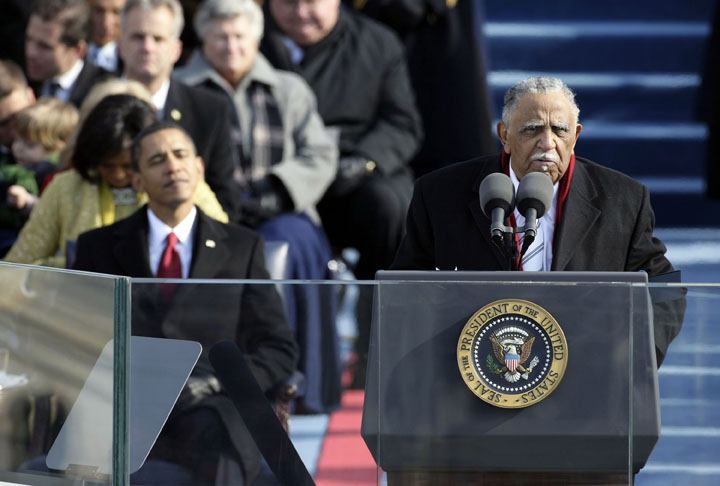 MCT Campus
MCT CampusWhen the Rev. Joseph Lowery delivered the benediction at President Barack Obama’s inauguration, he wore the joyful expression of a man vindicated after a lifetime of struggle.
Lowery, as a Methodist minister in Mobile, Ala., helped to lead the Montgomery bus boycott in 1955. He was a partner of Dr. Martin Luther King Jr. in the creation of the Southern Christian Leadership Conference and served as its president for 20 years.
Many factors brought the nation to the day when Lowery was able to stand before a world audience to celebrate the election of a black man as president. But no single factor hastened that historic day more than the Voting Rights Act of 1965.
The act added teeth to the post-Civil War constitutional amendment that prohibited denial of voting rights ‘on account of race, color, or previous condition of servitude.’ It forbade state and local governments from imposing any kind of discriminatory voting requirement or policy.
Dr. King considered voting rights ‘Civil Right No. 1,’ calling it ‘the foundation stone for political action,’ and surest means to racial equality.
Civil Right No. 1 is under attack.
This term, the U.S. Supreme Court will hear a challenge of a legal provision that requires nine states with histories of discriminatory practices to obtain ‘pre-clearance’ from the U.S. Department of Justice for any proposed changes to their election systems.
The changes requiring pre-clearance could be as broad as redrawing election district lines or as narrow as changing voting machine locations.
The protection was designed to force jurisdictions with checkered voting-rights histories to explain their proposed actions before making changes. By placing the burden of proving compliance on local election officials, the law relieves aggrieved voters from having to file a lawsuit to correct violations after the fact.
In 2006, just days after Congress extended the Voting Rights Act, a municipal utility district in Texas filed suit, challenging the constitutionality of the pre-clearance requirement. The district had been formed in the 1980s. It never has been accused of discrimination, but it is subject to the pre-clearance requirement because Texas is one of nine states covered by the requirement.
The utility district claimed that Congress exceeded its power by imposing the pre-clearance requirement too broadly, particularly given that the utility district had no record of previous discrimination.
That is a potent argument. But the Justice Department still regularly finds violations of the Voting Act in many jurisdictions. Rules allow many kinds of jurisdictions to be freed from the pre-clearance requirement if they prove no discrimination occurred for 10 years, but the rules don’t apply in the narrow case of the public utility district.
In short, by striking down the pre-clearance requirement in this narrow instance, the Supreme Court also might strike down a valuable protection that still is needed broadly. Such a decision would entail the court substituting its judgment for that of legislative bodies, the kind of ‘legislating from the bench’ that conservatives and conservative judges claim to abhor.
The justices should consider Dr. King’s advice on what’s needed to uphold Civil Right No. 1:
‘You cannot depend upon American institutions to function without pressure. Any real change in the status quo depends on continued creative action to sharpen the conscience of the nation and establish a climate in which even the most recalcitrant elements are forced to admit that change is necessary.’
For more than four decades, the Voting Rights Act has served to sharpen the nation’s conscience. There is no reason now to blunt its force.
St. Louis Dispatch Post
McClatchy-Tribune
Via MCT Campus

